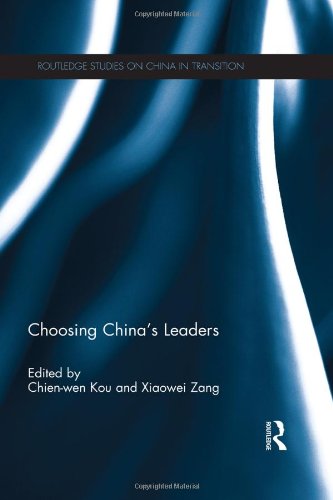

Most ebook files are in PDF format, so you can easily read them using various software such as Foxit Reader or directly on the Google Chrome browser.
Some ebook files are released by publishers in other formats such as .awz, .mobi, .epub, .fb2, etc. You may need to install specific software to read these formats on mobile/PC, such as Calibre.
Please read the tutorial at this link: https://ebookbell.com/faq
We offer FREE conversion to the popular formats you request; however, this may take some time. Therefore, right after payment, please email us, and we will try to provide the service as quickly as possible.
For some exceptional file formats or broken links (if any), please refrain from opening any disputes. Instead, email us first, and we will try to assist within a maximum of 6 hours.
EbookBell Team

5.0
20 reviewsPolitical elites are a key topic in contemporary China studies, and have been investigated in relation to factional politics, generation politics, technocracy, and crucially, institutionalization. The institutionalization of elite replacement began in China in the 1980s and quickly accelerated after the early 1990s, as mechanisms emerged to regulate political elites’ entry and exit, including age limits, term limits, and step-by-step promotion.
By examining the various processes of elite selection, this book explores the role played by institutionalization in elite recruitment, promotion and turnover in China. While existing studies have developed our understanding of Chinese elite politics, two key puzzles regarding institutionalisation remain. Although institutionalisation is recognised as an important trend in Chinese politics, there is as yet no theoretical framework to explain the forces that have brought about and sustained this. Further, it is unclear how the process of institutionalisation has impacted on factional politics, and how factions would continue to operate within the parameters of formal politics. Drawing on a wide range of studies, this book looks at Politburo members, senior People’s Liberation Army officers, provincial leaders, heads of major central state-owned enterprises, and Youth League affiliates, to provide a comprehensive understanding of elite recruitment and mobility in contemporary China.
This book will be of great interests to students and scholars of Chinese politics and government, Chinese studies and Asian politics more broadly.